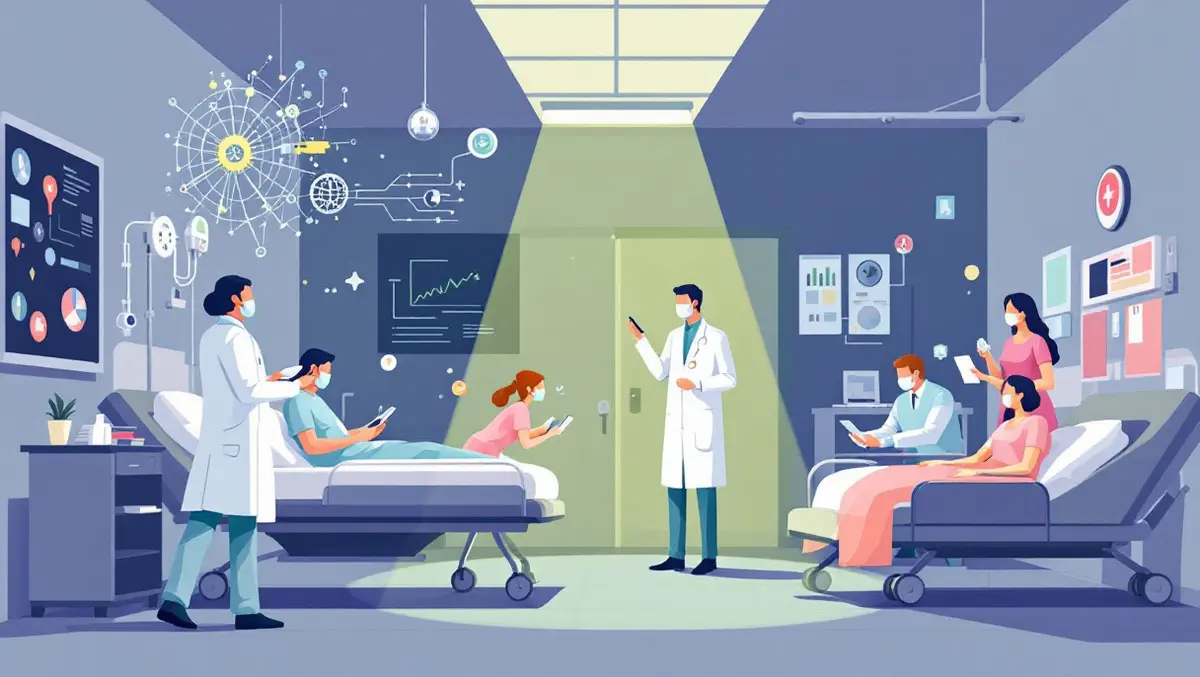
Australian healthcare lagging in generative AI adoption
The adoption and implementation of Generative AI (GenAI) within the Australian healthcare and life sciences sectors is progressing at a slower rate compared to many other countries, according to a study by SAS in partnership with Coleman Parkes Research.
The research surveyed 237 leaders from life sciences and pharmaceutical sectors, along with 240 healthcare leaders overseeing GenAI strategy in their organisations. It examined how these sectors are embracing GenAI, their primary challenges, and offered a comparative analysis with industries such as insurance, the public sector, and manufacturing.
Findings from the healthcare sector show that GenAI is used by 46% of healthcare organisations, with 95% planning to adopt the technology within two years. Increased efficiency in data processing and enhanced risk management are among the significant outcomes for existing users. "The unique challenges and diverse functions of the healthcare sector demand special consideration to regulatory and compliance issues, data sensitivity, interoperability and bias in AI algorithms," stated Alyssa Farrell, Global Health and Life Sciences Industry Marketing Director at SAS. "The adoption of GenAI in healthcare is projected to rapidly catch up as the industry addresses these concerns."
Within life sciences, the study revealed 58% of organisations currently use GenAI, with a robust 97% planning to incorporate it. The efficiency in handling large data sets and resultant operational savings are key benefits cited. Farrell remarked, "The life sciences sector is looking toward a GenAI future with strong rates of organisational use - and the budgets to back it up. The technology's strengths in prediction and modeling suggest incredible potential to accelerate initiatives across the entire value chain, from R&D through clinical trials and commercialisation. Leaders are feeling positive about what GenAI can do, particularly when it comes to innovating and maintaining a competitive advantage."
Data privacy and security remain significant concerns, with more than three-quarters of leaders in both fields expressing unease. Governance also emerged as a critical issue, with just a small fraction of leaders reporting well-established AI governance frameworks. In healthcare, regulation poses challenges to broader GenAI integration, as noted by the research.
The use of synthetic data is being explored as a solution to several data-related challenges in both sectors. This approach addresses data scarcity and privacy issues by generating synthetic datasets that reflect real-world information without compromising sensitive patient details. Currently, 56% of life sciences and 46% of healthcare organisations use or consider synthetic data as a viable alternative. Farrell highlighted the importance of this development: "Data is the lifeblood of the digital health ecosystem. Continued investment in interoperability and data governance is key to provide the fuel for a GenAI future. Incorporating synthetic data and technology, such as digital twins, is yet another way to derive more value from data for the benefit of patients and population health outcomes."
Lily Clarke, Customer Success Manager at SAS Australia, offers insights into how the nation can advance its use of new technologies. She points out that while Australian entities are cautious due to data privacy concerns, they could learn from global counterparts who are leveraging GenAI in private healthcare for marketing and administrative tasks. "Innovating with new technologies - why Australia needs to bolster efforts to unlock potential with technologies, such as digital twins and synthetic data for healthcare breakthroughs," she suggested, pointing to the need for Australia to catch up on global trends.


